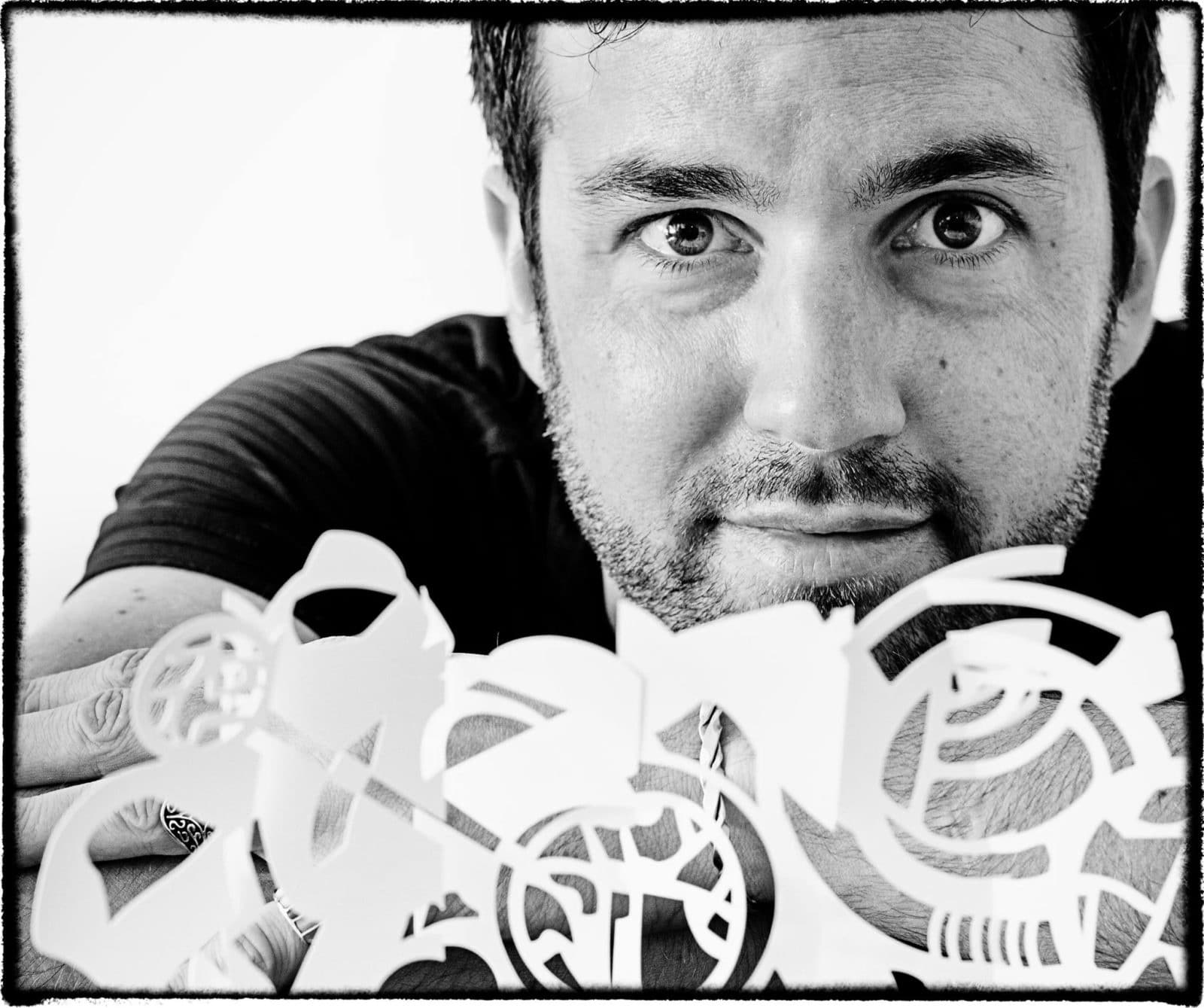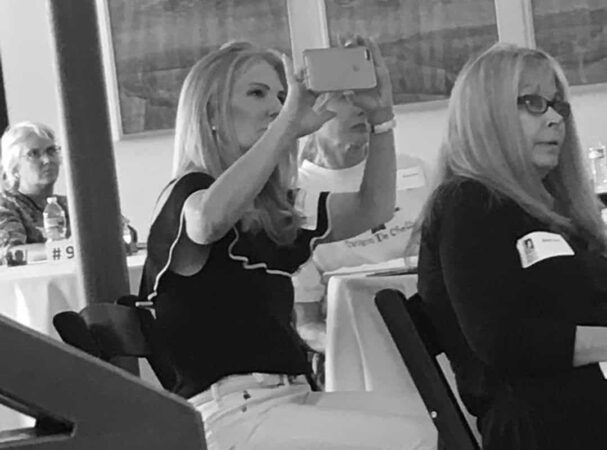Betsy Ehrenberg is the founder of Glass Alliance New Mexico and Glass Alliance of Northern California, organizations that further the development and appreciation of glass art. She is also a business strategy coach and president of Bridges to Santa Fe, a company that helps businesses achieve their goals through marketing and product design consulting. Also, Betsy’s company is co-sponsoring an upcoming event called the Santa Fe Art Business Summit (now at capacity), in collaboration with the Clark Hulings Foundation and the Art Business Institute.
Why Artists Need Business Training:
- “Sometimes they [artists] think earning money, charging for their work, is not something they want to do. They feel embarrassed to do so. It’s an attitude, I have no idea where it begins, but a lot of artists just look at the word ‘money’ and see a four letter word.”
- “They need training on how to differentiate themselves, how to price their work properly, how to reach out to collectors. They’re not getting this in university.”
- “What is copyrighting? What is trademarking? What is the difference, and how do you know of you even want to copyright or trademark your artwork?”
- “Each artist has their own little concern. One of them is pricing. They don’t know whether they should be pricing their work based upon the material that they use, or on the time it takes, or whether they are pricing their work because it looks like somebody else’s, in context.”
- “The art educators, in many cases, have not been successful artists as measured by the amount of money they are able to make because they are an artist. They’re really not aware of the skills that they should have, and therefore, they’re not even teaching the artist the skills that they need to have, and should be able to demonstrate once they decide they’re going to make a living as an artist.”
- “Artists sometimes abandon the products that they have, that can make them money. They don’t have to do that…If it’s so popular, it’s okay, I believe, for them to get fabricators to help them make more of them. Artists often don’t want to even entertain that thought.”
Santa Fe as a Hub of the Art World:
- “With over 200 galleries in Santa Fe, the participants will have a chance to visit as many galleries as they want, to be able to see how work that they believe is similar to theirs is actually priced.”
- “The organization, the Art Business Institute, so coming to Santa Fe for the first time because, number one, there’s a big audience, and number two, artists from all over the country want to have a chance to experience Santa Fe, an art centric city.”
What’s Missing from Arts Education:
- “We have invited the art educators from the three universities in Santa Fe, who are teaching artists skills and how to be in business…My goal was to update the three universities on how to teach the business of art.”
- “The instructors are artists, people who have their MBA. They may be making somewhat of a living from selling their art, but because they’re in a learning environment, they want students to be fed a bunch of information, and demonstrate that they’ve learned it, even if the information is irrelevant.”
- “If it is a marketing website and they’re also selling their work in a gallery, the gallery owner is going to be annoyed that the artist is now trying to sell directly to the collector, bypassing the gallery. When educators in these three universities are spending four to six weeks teaching artists how to make websites, in fact it can hurt the artist’s ability to actually make money.”
- “The art educators are spending time talking about skills that are not important, whether or not the artist should have a C corporation, or a limited liability, or a partnership, or they shouldn’t even have a corporation.”
- “Artists can do something that business people often cannot do. That is probably the reason I support the artists, that I educate them, I speak to collectors constantly, I go in to speak to dealers, and curators. I realize art feeds the soul. “
Marketing, Selling, and Artist Dependence on Galleries:
- “Selling is handling the transaction…if you really look at what selling is, selling begins when the customer says, ‘No, I don’t want it.’ The good salesperson will then say, ‘I understand that you don’t want it, but what is it that you were looking for? What is it about this particular item that doesn’t compel you to buy it?’ That’s what selling is.”
- “Marketing is promotion, marketing is branding, marketing is advertising what is specific and unique to that artist.”
- “Marketing on the other hand is something that an artist can do all the time, and understand what they should be saying about their work, what they should not be saying about their work.”
- “The business needs of the working artists and the corporate clients are very, very similar…An artist has the ability to take their color combinations and take ownership of them in a way that nobody else has ever done before.”
- “The artist sometimes cannot accept the fact that it is still their work, even if somebody else is helping them fabricate it.”
What Appeals to Collectors:
- “When the artist could share a narrative about why they wanted to share, they wanted to make that piece so that they could share an idea, share their passion, send a message, that there was a narrative, I got so excited.”
- “There’s another whole thing that collectors do. It’s called covet and flaunt. Covet, you go into somebody else’s home of gallery and say, “I really want that.” Then the flaunt part is if you got the one piece that that artist made with that design, with that message, you can brag about it.”







